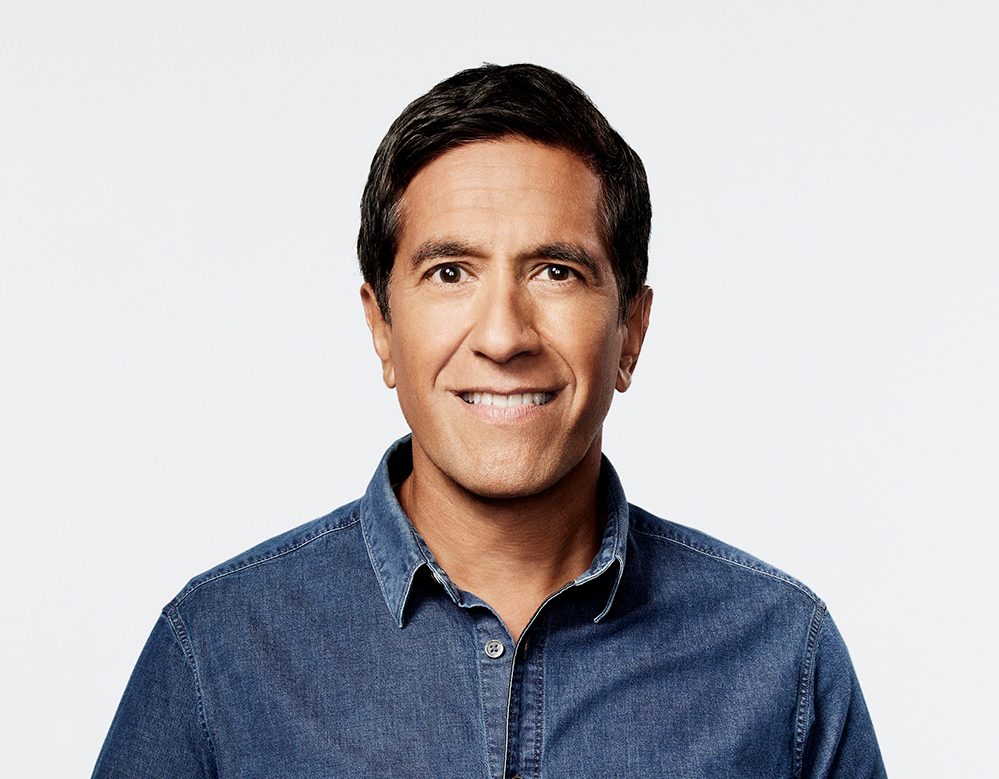
Since he joined CNN in 2001, Dr. Sanjay Gupta has traveled the country and the world to cover some of the most important health stories of the century.
In 2010 alone, the network’s chief medical correspondent reported on the devastating earthquake in Haiti, for which he was awarded two Emmy awards; covered unprecedented flooding in Pakistan; and contributed to the network’s 2010 Peabody Award-winning coverage of the oil disaster in the Gulf of Mexico.
“For so many of us, Dr. Gupta is the face we see and know — he is a broker of truth. He’s on the frontlines of the health crises that follow natural disasters or human conflict, and the voice of reason, assurance, and authority,” in public health emergencies, said Deborah Sunya Moore, senior vice president and chief program officer, who strongly advocated for Gupta to be part of Week Nine because of his work in, and work drawing attention to, the Global South.
Gupta, who is a practicing neurosurgeon, New York Times bestselling author, award-winning broadcast journalist and associate professor at Emory University Hospital, will close Week Nine for the Chautauqua Lecture Series, and the 2023 Summer Assembly Season, at 10:45 a.m. today in the Amphitheater by discussing “Reporting and Practicing Medicine in the Global South.”
On March 9, 2020, two days before the World Health Organization declared the novel coronavirus outbreak a pandemic, Gupta took to CNN to outline why he and the network were shifting their language in regards to COVID-19.
“Starting today, you will notice that CNN is using the term ‘pandemic’ to describe the current coronavirus outbreak,” he said. “It is not a decision we take lightly.”
Gupta outlined criteria for what makes a pandemic, a pandemic, and highlighted the work of public health leaders, epidemiologists and clinicians he’d spent the previous days interviewing.
He outlined what may come in the days ahead, and closed with a reminder: Humanity has overcome pandemics before.
“In this globally connected world, we may be asked to add more social distance between each other, but that doesn’t mean we can’t still collectively come together as a nation and as a world,” he said. “This is a crisis we can overcome if we can work together.”
Gupta has continued covering the COVID-19 pandemic, from the development of vaccines and their rollout, as well as new variants — his most recent report on that front was just last week. It’s one of many topics he reports on regularly — lately, his focus has been on longevity science, teen health in the digital age, and cannabis use among older adults.
In 2014, Gupta was the first Western reporter who traveled to Conakry, Guinea, to investigate the deadly Ebola outbreak that would soon find its way to the United States, and in 2017 he reported from the frontlines of a breakdown in Puerto Rico’s medical infrastructure after the devastation of Hurricane Maria. In 2004, he was sent to Sri Lanka to cover the tsunami that claimed more than 155,000 lives in Southeast Asia, contributing to the 2005 Alfred I. duPont-Columbia University Award for CNN.
Before he was a broadcast journalist, Gupta was, and is, a doctor. His interest in health policy led him to a position as one of 15 White House Fellows for a year in 1997, where he primarily served as an adviser to First Lady Hillary Clinton.
“I think whether you’re a physician or whatever facet of society you’re involved with, understanding how that works and having a voice is really important. I got interested in health policy at a pretty young age when I was in medical school, and it sort of morphed from there. I started doing more and more writing in that area, advising people,” Gupta told the Elon News Network in advance of delivering the college’s Baird Lecture in March, and said his time in the White House “was the first time I realized that the way you communicate big topics is really important. Understanding (them) is important, but how you then communicate them is also really important.”




